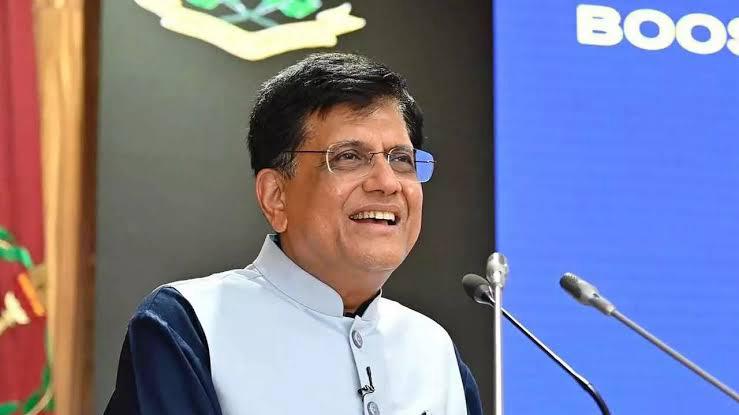 Image Source: The Hans India
Image Source: The Hans India
Key Highlights
India has achieved a remarkable 4,000% surge in solar energy capacity over the past decade, propelling its total renewable energy portfolio to 227 GW and positioning the nation as a global leader in clean energy. Union Minister Piyush Goyal announced this milestone at the 11th India Energy Storage Week (IESW) 2025, emphasizing that India is likely the first G20 country to meet its Nationally Determined Contributions (NDCs) under the Paris Agreement.
Unprecedented Growth and Policy Milestones
The country’s solar photovoltaic module manufacturing capacity has expanded nearly 38-fold, while photovoltaic cell capacity has grown 21 times in the last ten years.
Flagship initiatives such as the PM Surya Ghar Yojana (targeting 1 crore rooftop solar-powered homes) and PM Kusum Yojana (promoting solar pumps in agriculture) have accelerated adoption across urban and rural India.
The Production Linked Incentive (PLI) scheme is driving advanced chemistry cell (ACC) manufacturing, further strengthening domestic supply chains.
Call for Self-Reliance in Energy Storage
Minister Goyal underscored that the next frontier is energy storage, vital for round-the-clock renewable power supply. He called for a four-pronged approach: targeted innovation, robust infrastructure, resilient supply chains, and holistic value chain development.
India has announced a ₹1 lakh crore Research, Development and Innovation Fund to boost breakthroughs in battery technology, solid-state and hybrid storage, and circular supply chains.
Goyal urged stakeholders to focus on developing indigenous battery chemistries and reducing reliance on imports, ensuring energy independence and affordability for the future.
Sustainable Infrastructure and Global Leadership
India’s commitment to sustainability is showcased by venues like Yashobhoomi, which features rooftop solar, wastewater recycling, and energy-efficient systems.
The nation’s clean energy journey is now a model for other developing economies, with ongoing efforts to achieve 500 GW of renewable energy capacity by 2030 and net zero emissions by 2070.
Sources: Bioenergy Times, Business Standard, Adda247
Advertisement
Advertisement




